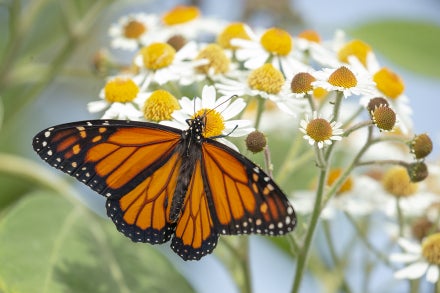Image

Zoo InternQuest is a seven-week career exploration program for San Diego County high school juniors and seniors. Students have the unique opportunity to meet professionals working for the San Diego Zoo, Safari Park, and Institute for Conservation Research, learn about their jobs and then blog about their experience online. Follow their adventures here on the Zoo’s Website!
 This week, Interns had the opportunity to work with Ryan Fitch, a Research Associate for the Plant Conservation Department at the San Diego Zoo’s Institute for Conservation Research. Mr. Fitch leads the Institute’s attempt to aid the endangered cactus wren by planting more cacti, which the wren rely on for nesting. Near Lake Hodges, Mr. Fitch gave us an overview of why the wren has been having problems. Cactus is very good at surviving once it is well-established, but the high number of fires that San Diego has had in recent years has wiped out many cacti, which has led to invasive weeds taking over. These weeds grow quickly and spread fast, so the cactus can’t compete. Without cactus, the cactus wren has no place to live. Mr. Fitch led the interns on a small hike to the area where he has been working to reestablish the cactus population to help the cactus wren. We spent most of the day planting cactus right near the lake, leading to quite a few pricks!
Mr. Fitch comes from an unexpected background, considering his current work in conservation. He first got his degree in engineering and worked in civil service in the housing sector. During this time, Mr. Fitch was pro-development; he promoted the spread of housing into untouched areas. The 2008 recession hit the housing sector very hard and Mr. Fitch was suddenly out of the job. He had always been an outdoorsman, so he decided to change careers to focus more on this passion. Mr. Fitch went back to college at San Diego State University and earned a degree in biology with an emphasis on evolution and systematics. While he was studying, Mr. Fitch had the opportunity to help with research on the flannel bush, a native plant found in regions of the southwestern United States that is recognizable by its large yellow flowers. Mr. Fitch was trying to find out which insects pollinated the plant, information that is always useful in understanding of ecosystem. Upon graduating with a second bachelor’s degree, he continued onto a master’s program but he ended his education early to take care of his newly born son.
Mr. Fitch spent the next few years doing wildlife survey work for various groups, like the Miramar Marine Corps Base. Eventually he found a listing by the Institute for Conservation Research as a part-time worker on a conservation project for the California sagebrush. After working on the project for around a year Mr. Fitch applied for the leader position of the cactus wren project and got the job. Now he works full-time for the Institute’s Plant Conservation Department, but the future still isn’t set in stone for Mr. Fitch. Like most science institutions, the Institute for Conservation Research relies on grants to carry out its many projects. When Mr. Fitch’s project is completed he isn’t guaranteed another job; the issue is especially prominent in the Plant Conservation Department, which doesn’t receive as many grants as other departments. Until then, Mr. Fitch is enjoying his work and has made it clear that he wants to keep working with the Zoo far into the future.
There is much to learn from Mr. Fitch’s path in life. It is never too late to change your career and pursue something more suited to your interests. Mr. Fitch went back to college many years after he graduated the first time and it has worked out very well for him. His new career matches his personality much better than before and he is happier because of it. Mr. Fitch also serves as an example of the difficulty involved in getting involved with a new field. No matter what the career that you’re pursuing is, it is always hard to get your foot in the door as evidenced by Mr. Fitch’s time working in part-time positions. On a more light-hearted note, Mr. Fitch finished the day by telling interns this personal piece of wisdom: don’t have children until after you finish your education.
Ethan Good, Careers Team
Week Five, Fall Season 2016
This week, Interns had the opportunity to work with Ryan Fitch, a Research Associate for the Plant Conservation Department at the San Diego Zoo’s Institute for Conservation Research. Mr. Fitch leads the Institute’s attempt to aid the endangered cactus wren by planting more cacti, which the wren rely on for nesting. Near Lake Hodges, Mr. Fitch gave us an overview of why the wren has been having problems. Cactus is very good at surviving once it is well-established, but the high number of fires that San Diego has had in recent years has wiped out many cacti, which has led to invasive weeds taking over. These weeds grow quickly and spread fast, so the cactus can’t compete. Without cactus, the cactus wren has no place to live. Mr. Fitch led the interns on a small hike to the area where he has been working to reestablish the cactus population to help the cactus wren. We spent most of the day planting cactus right near the lake, leading to quite a few pricks!
Mr. Fitch comes from an unexpected background, considering his current work in conservation. He first got his degree in engineering and worked in civil service in the housing sector. During this time, Mr. Fitch was pro-development; he promoted the spread of housing into untouched areas. The 2008 recession hit the housing sector very hard and Mr. Fitch was suddenly out of the job. He had always been an outdoorsman, so he decided to change careers to focus more on this passion. Mr. Fitch went back to college at San Diego State University and earned a degree in biology with an emphasis on evolution and systematics. While he was studying, Mr. Fitch had the opportunity to help with research on the flannel bush, a native plant found in regions of the southwestern United States that is recognizable by its large yellow flowers. Mr. Fitch was trying to find out which insects pollinated the plant, information that is always useful in understanding of ecosystem. Upon graduating with a second bachelor’s degree, he continued onto a master’s program but he ended his education early to take care of his newly born son.
Mr. Fitch spent the next few years doing wildlife survey work for various groups, like the Miramar Marine Corps Base. Eventually he found a listing by the Institute for Conservation Research as a part-time worker on a conservation project for the California sagebrush. After working on the project for around a year Mr. Fitch applied for the leader position of the cactus wren project and got the job. Now he works full-time for the Institute’s Plant Conservation Department, but the future still isn’t set in stone for Mr. Fitch. Like most science institutions, the Institute for Conservation Research relies on grants to carry out its many projects. When Mr. Fitch’s project is completed he isn’t guaranteed another job; the issue is especially prominent in the Plant Conservation Department, which doesn’t receive as many grants as other departments. Until then, Mr. Fitch is enjoying his work and has made it clear that he wants to keep working with the Zoo far into the future.
There is much to learn from Mr. Fitch’s path in life. It is never too late to change your career and pursue something more suited to your interests. Mr. Fitch went back to college many years after he graduated the first time and it has worked out very well for him. His new career matches his personality much better than before and he is happier because of it. Mr. Fitch also serves as an example of the difficulty involved in getting involved with a new field. No matter what the career that you’re pursuing is, it is always hard to get your foot in the door as evidenced by Mr. Fitch’s time working in part-time positions. On a more light-hearted note, Mr. Fitch finished the day by telling interns this personal piece of wisdom: don’t have children until after you finish your education.
Ethan Good, Careers Team
Week Five, Fall Season 2016
 This week, Interns had the opportunity to work with Ryan Fitch, a Research Associate for the Plant Conservation Department at the San Diego Zoo’s Institute for Conservation Research. Mr. Fitch leads the Institute’s attempt to aid the endangered cactus wren by planting more cacti, which the wren rely on for nesting. Near Lake Hodges, Mr. Fitch gave us an overview of why the wren has been having problems. Cactus is very good at surviving once it is well-established, but the high number of fires that San Diego has had in recent years has wiped out many cacti, which has led to invasive weeds taking over. These weeds grow quickly and spread fast, so the cactus can’t compete. Without cactus, the cactus wren has no place to live. Mr. Fitch led the interns on a small hike to the area where he has been working to reestablish the cactus population to help the cactus wren. We spent most of the day planting cactus right near the lake, leading to quite a few pricks!
Mr. Fitch comes from an unexpected background, considering his current work in conservation. He first got his degree in engineering and worked in civil service in the housing sector. During this time, Mr. Fitch was pro-development; he promoted the spread of housing into untouched areas. The 2008 recession hit the housing sector very hard and Mr. Fitch was suddenly out of the job. He had always been an outdoorsman, so he decided to change careers to focus more on this passion. Mr. Fitch went back to college at San Diego State University and earned a degree in biology with an emphasis on evolution and systematics. While he was studying, Mr. Fitch had the opportunity to help with research on the flannel bush, a native plant found in regions of the southwestern United States that is recognizable by its large yellow flowers. Mr. Fitch was trying to find out which insects pollinated the plant, information that is always useful in understanding of ecosystem. Upon graduating with a second bachelor’s degree, he continued onto a master’s program but he ended his education early to take care of his newly born son.
Mr. Fitch spent the next few years doing wildlife survey work for various groups, like the Miramar Marine Corps Base. Eventually he found a listing by the Institute for Conservation Research as a part-time worker on a conservation project for the California sagebrush. After working on the project for around a year Mr. Fitch applied for the leader position of the cactus wren project and got the job. Now he works full-time for the Institute’s Plant Conservation Department, but the future still isn’t set in stone for Mr. Fitch. Like most science institutions, the Institute for Conservation Research relies on grants to carry out its many projects. When Mr. Fitch’s project is completed he isn’t guaranteed another job; the issue is especially prominent in the Plant Conservation Department, which doesn’t receive as many grants as other departments. Until then, Mr. Fitch is enjoying his work and has made it clear that he wants to keep working with the Zoo far into the future.
There is much to learn from Mr. Fitch’s path in life. It is never too late to change your career and pursue something more suited to your interests. Mr. Fitch went back to college many years after he graduated the first time and it has worked out very well for him. His new career matches his personality much better than before and he is happier because of it. Mr. Fitch also serves as an example of the difficulty involved in getting involved with a new field. No matter what the career that you’re pursuing is, it is always hard to get your foot in the door as evidenced by Mr. Fitch’s time working in part-time positions. On a more light-hearted note, Mr. Fitch finished the day by telling interns this personal piece of wisdom: don’t have children until after you finish your education.
Ethan Good, Careers Team
Week Five, Fall Season 2016
This week, Interns had the opportunity to work with Ryan Fitch, a Research Associate for the Plant Conservation Department at the San Diego Zoo’s Institute for Conservation Research. Mr. Fitch leads the Institute’s attempt to aid the endangered cactus wren by planting more cacti, which the wren rely on for nesting. Near Lake Hodges, Mr. Fitch gave us an overview of why the wren has been having problems. Cactus is very good at surviving once it is well-established, but the high number of fires that San Diego has had in recent years has wiped out many cacti, which has led to invasive weeds taking over. These weeds grow quickly and spread fast, so the cactus can’t compete. Without cactus, the cactus wren has no place to live. Mr. Fitch led the interns on a small hike to the area where he has been working to reestablish the cactus population to help the cactus wren. We spent most of the day planting cactus right near the lake, leading to quite a few pricks!
Mr. Fitch comes from an unexpected background, considering his current work in conservation. He first got his degree in engineering and worked in civil service in the housing sector. During this time, Mr. Fitch was pro-development; he promoted the spread of housing into untouched areas. The 2008 recession hit the housing sector very hard and Mr. Fitch was suddenly out of the job. He had always been an outdoorsman, so he decided to change careers to focus more on this passion. Mr. Fitch went back to college at San Diego State University and earned a degree in biology with an emphasis on evolution and systematics. While he was studying, Mr. Fitch had the opportunity to help with research on the flannel bush, a native plant found in regions of the southwestern United States that is recognizable by its large yellow flowers. Mr. Fitch was trying to find out which insects pollinated the plant, information that is always useful in understanding of ecosystem. Upon graduating with a second bachelor’s degree, he continued onto a master’s program but he ended his education early to take care of his newly born son.
Mr. Fitch spent the next few years doing wildlife survey work for various groups, like the Miramar Marine Corps Base. Eventually he found a listing by the Institute for Conservation Research as a part-time worker on a conservation project for the California sagebrush. After working on the project for around a year Mr. Fitch applied for the leader position of the cactus wren project and got the job. Now he works full-time for the Institute’s Plant Conservation Department, but the future still isn’t set in stone for Mr. Fitch. Like most science institutions, the Institute for Conservation Research relies on grants to carry out its many projects. When Mr. Fitch’s project is completed he isn’t guaranteed another job; the issue is especially prominent in the Plant Conservation Department, which doesn’t receive as many grants as other departments. Until then, Mr. Fitch is enjoying his work and has made it clear that he wants to keep working with the Zoo far into the future.
There is much to learn from Mr. Fitch’s path in life. It is never too late to change your career and pursue something more suited to your interests. Mr. Fitch went back to college many years after he graduated the first time and it has worked out very well for him. His new career matches his personality much better than before and he is happier because of it. Mr. Fitch also serves as an example of the difficulty involved in getting involved with a new field. No matter what the career that you’re pursuing is, it is always hard to get your foot in the door as evidenced by Mr. Fitch’s time working in part-time positions. On a more light-hearted note, Mr. Fitch finished the day by telling interns this personal piece of wisdom: don’t have children until after you finish your education.
Ethan Good, Careers Team
Week Five, Fall Season 2016



